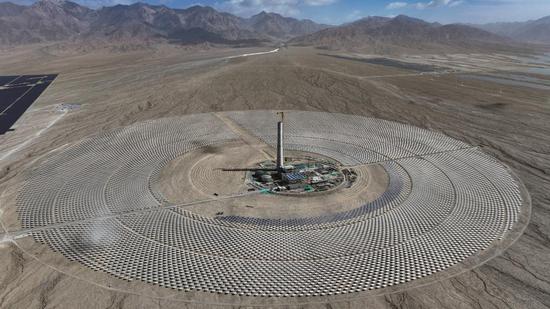
(Photo/Screenshot from CCTV)
An overall warming trend has been observed in the Antarctic continent by scientists over a long term with the speed 0.12 C per decade, China Central Television reported on Sunday citing the China Meteorological Administration.
An expert said that due to Antarctica’s unique geographical environment, the temperature changes in coastal and inland areas on the continent present a relatively complex situation.
Due to Antarctica’s unique geographical environment, most existing observation stations on the continent are located along coastal areas with their distribution being sparse, resulting in a lack of effective observational data, according to CCTV.
Chinese meteorologists used the latest reanalysis data from the China Meteorological Administration along with internationally recognized data to demonstrate that the Antarctic continent has shown an overall warming trend over the past 40 years, according to Ding Minghu, director of the Institute of Global Change and Polar Meteorology of the Chinese Academy of Meteorological Sciences.
According to Ding, the Antarctic continent is very large, about 1.5 times the area of China and the warming has primarily occurred in the Antarctic Peninsula and the central region of East Antarctica.
Antarctica plays a role as the “cold source” of the global climate system, functioning like an “air conditioner condenser” installed at the southernmost point of the Earth. The climate change on the Antarctica has a profound impact on global sea level rise and atmospheric circulation patterns, according to the CCTV report.
Ding explained that the long-term warming trend of the Antarctic continent is primarily caused by human activities. Human actions have led to the warming of the Southern Ocean and an increase in the sea temperatures, which in turn have caused the temperature of Antarctica to rise.
Although there are some benefits to the warming of the Antarctic continent – which are few, generally speaking, the negative effects outweigh the positive ones, Ding said.
In the short term, the warming of Antarctica has already caused changes in biodiversity and has affected the global weather and climate. In the long term, the warming of Antarctica will accelerate the melting of ice shelves, and the ice sheets will also melt more extensively, leading to rising sea levels, according to Ding.


















































 京公網安備 11010202009201號
京公網安備 11010202009201號